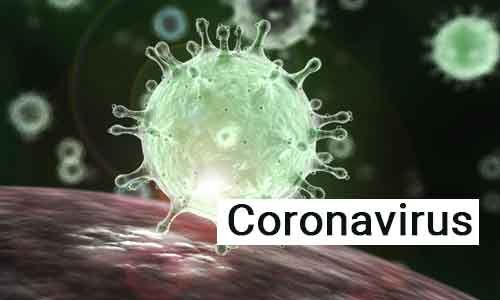- Home
- Medical news & Guidelines
- Anesthesiology
- Cardiology and CTVS
- Critical Care
- Dentistry
- Dermatology
- Diabetes and Endocrinology
- ENT
- Gastroenterology
- Medicine
- Nephrology
- Neurology
- Obstretics-Gynaecology
- Oncology
- Ophthalmology
- Orthopaedics
- Pediatrics-Neonatology
- Psychiatry
- Pulmonology
- Radiology
- Surgery
- Urology
- Laboratory Medicine
- Diet
- Nursing
- Paramedical
- Physiotherapy
- Health news
- Fact Check
- Bone Health Fact Check
- Brain Health Fact Check
- Cancer Related Fact Check
- Child Care Fact Check
- Dental and oral health fact check
- Diabetes and metabolic health fact check
- Diet and Nutrition Fact Check
- Eye and ENT Care Fact Check
- Fitness fact check
- Gut health fact check
- Heart health fact check
- Kidney health fact check
- Medical education fact check
- Men's health fact check
- Respiratory fact check
- Skin and hair care fact check
- Vaccine and Immunization fact check
- Women's health fact check
- AYUSH
- State News
- Andaman and Nicobar Islands
- Andhra Pradesh
- Arunachal Pradesh
- Assam
- Bihar
- Chandigarh
- Chattisgarh
- Dadra and Nagar Haveli
- Daman and Diu
- Delhi
- Goa
- Gujarat
- Haryana
- Himachal Pradesh
- Jammu & Kashmir
- Jharkhand
- Karnataka
- Kerala
- Ladakh
- Lakshadweep
- Madhya Pradesh
- Maharashtra
- Manipur
- Meghalaya
- Mizoram
- Nagaland
- Odisha
- Puducherry
- Punjab
- Rajasthan
- Sikkim
- Tamil Nadu
- Telangana
- Tripura
- Uttar Pradesh
- Uttrakhand
- West Bengal
- Medical Education
- Industry
CDC Updates Guidance for Novel Coronavirus

US: With more and more cases of Corona Visus being reported from across the world now, Centers for Disease Control and Prevention has come out with the updated guidance for doctors
Limited information is available to characterize the spectrum of clinical illness associated with 2019-nCoV. No vaccine or specific treatment for 2019-nCoV infection is available; care is supportive, noted the CDC.
An outbreak of a new coronavirus has spread to more Chinese cities, including the capital Beijing and Shanghai and a fourth case has been reported beyond China's borders. Authorities around the globe, including in the United States and many Asian countries, have stepped up screening of travellers from Wuhan, the central city where the virus was first discovered.
Coronaviruses are a large family of viruses. Some cause illness in people; numerous other coronaviruses circulate among animals, including camels, cats, and bats. Rarely, animal coronaviruses can evolve and infect people and then spread between people such as has been seen with Middle Eastern Respiratory Syndrome Coronavirus (MERS-CoV) and Severe Acute Respiratory Syndrome Coronavirus (SARS-CoV)
The Centers for Disease Control and Prevention (CDC) continues to closely monitor an outbreak of a 2019 novel coronavirus (2019-nCoV) in Wuhan City, Hubei Province, China that began in December 2019. CDC has established an Incident Management System to coordinate a domestic and international public health response.
Keeping in view the emergent nature of the problem the CDC has released new guidance for clinicians regarding the novel coronavirus (2019-nCoV) that has sickened over 200 people in China and killed three, according to news accounts. Cases have also been reported in Japan, Thailand, and South Korea.
Criteria to Guide Evaluation of Patients Under Investigation (PUI) for 2019-nCoV
Patients in the United States who meet the following criteria should be evaluated as a PUI in association with the outbreak of 2019-nCoV in Wuhan City, China.
1) Fever1 AND symptoms of lower respiratory illness (e.g., cough, shortness of breath)
–and in the last 14 days before symptom onset,
History of travel from Wuhan City, China
-or-
Close contact2 with a person who is under investigation for 2019-nCOV while that person was ill.
2) Fever1 OR symptoms of lower respiratory illness (e.g., cough, shortness of breath)
–and in the last 14 days before symptom onset,
Close contact2 with an ill laboratory-confirmed 2019-nCoV patient.
The above criteria are also available at https://www.cdc.gov/coronavirus/2019-nCoV/clinical-criteria.html. The criteria are intended to serve as guidance for evaluation. Patients should be evaluated and discussed with public health departments on a case-by-case basis if their clinical presentation or exposure history is equivocal (e.g., uncertain travel or exposure).
If clinicians are caring for a person under investigation for 2019-nCoV, they should immediately notify their healthcare facility's infection control department and their local or state health department. The CDC recommends that such patients be evaluated in an airborne infection isolation room if possible. Standard precautions, contact precautions, and airborne precautions should be followed. Clinicians should also use eye protection.
The CDC has already begun screening travellers from Wuhan at three U.S. airports: New York (JFK), Los Angeles (LAX), and San Francisco (SFO), its release stated.
Hina Zahid Joined Medical Dialogue in 2017 with a passion to work as a Reporter. She coordinates with various national and international journals and association and covers all the stories related to Medical guidelines, Medical Journals, rare medical surgeries as well as all the updates in the medical field. Email: editorial@medicaldialogues.in. Contact no. 011-43720751
Dr Kamal Kant Kohli-MBBS, DTCD- a chest specialist with more than 30 years of practice and a flair for writing clinical articles, Dr Kamal Kant Kohli joined Medical Dialogues as a Chief Editor of Medical News. Besides writing articles, as an editor, he proofreads and verifies all the medical content published on Medical Dialogues including those coming from journals, studies,medical conferences,guidelines etc. Email: drkohli@medicaldialogues.in. Contact no. 011-43720751


